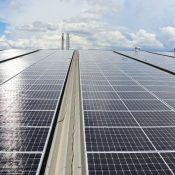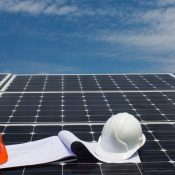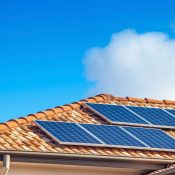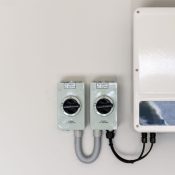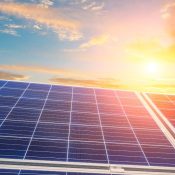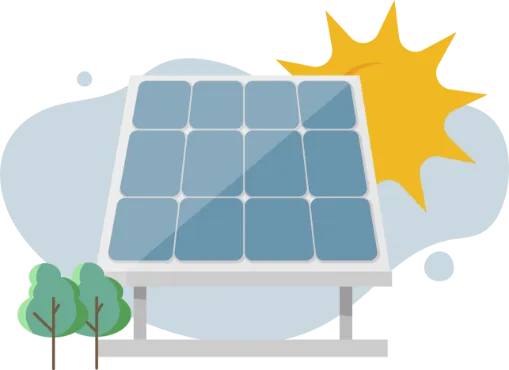Are PV Solar Panels Easy to Install?
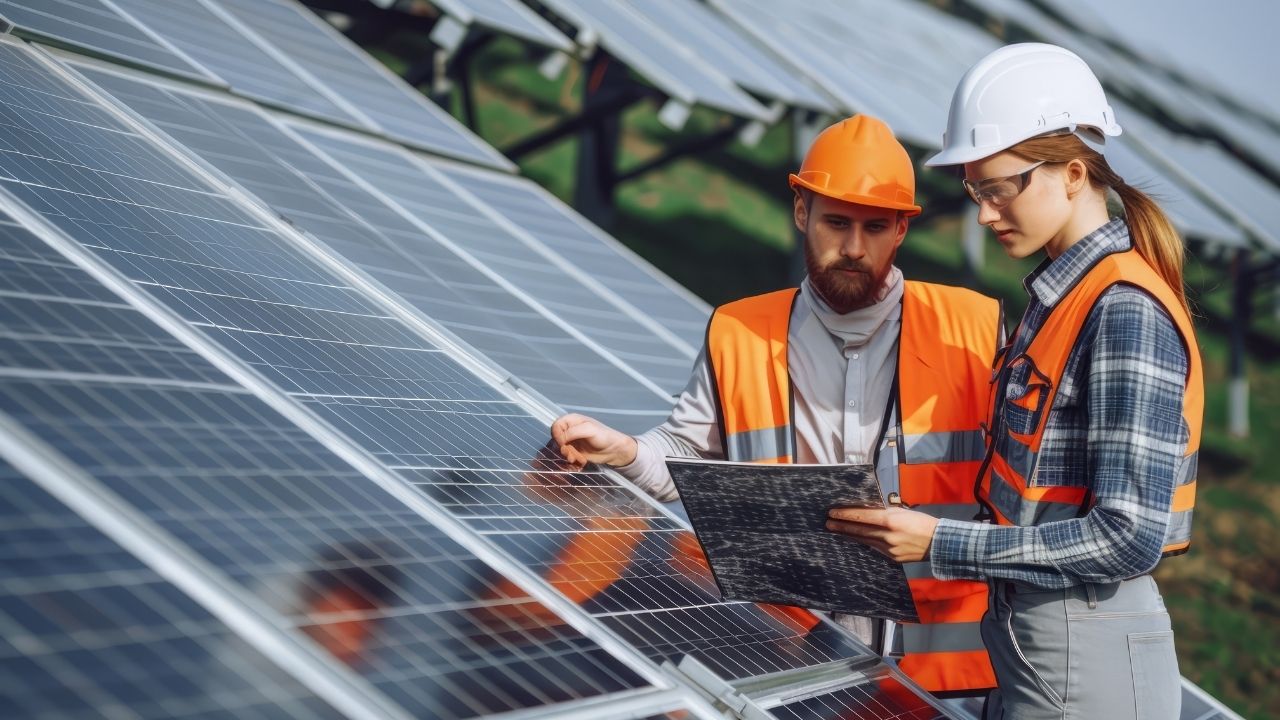
Are you considering switching to solar energy but wondering if PV solar panels are easy to install? This is a common question for many homeowners and business owners looking to take advantage of renewable energy.
The move towards solar power can be challenging, especially with concerns about the complexity and cost of installation. However, understanding the process and what it involves can make the decision much easier.
In this blog post, we will explore the installation process of PV solar panels and discuss the benefits of making a smooth move to sustainable energy.
What are PV Solar Panels?
Photovoltaic (PV) solar panels are devices that convert sunlight directly into electricity. They are made up of many solar cells, usually composed of silicon, which is a semiconductor material. When sunlight hits these cells, it generates an electric current that can be used to power homes and businesses.
How do PV Solar Panels Work?
PV solar panels work on the principle of the photovoltaic effect. When sunlight strikes the surface of a solar cell, it knocks electrons loose from their atoms. These free electrons flow through the material to produce direct-current (DC) electricity.
An inverter then converts this DC electricity into alternating current (AC), which can be used by most household appliances and fed into the power grid.
What Are the Types of PV Solar Panels?
When considering PV solar panels for your home or business, it’s essential to understand the different types available. Each type comes with its own set of advantages, disadvantages, and costs. Here’s a detailed look at the main types of PV solar panels:
Monocrystalline Solar Panels
Monocrystalline solar panels are known for their high efficiency and sleek appearance. They are made from single-crystal silicon, which allows electrons to flow more freely, resulting in higher efficiency rates compared to other types.
These panels typically have an efficiency range of 15-20%, making them one of the most efficient options available. They also have a long lifespan of 25–30 years and are recognised by their uniform, dark colour.
Polycrystalline Solar Panels
Polycrystalline solar panels are made from silicon crystals and are slightly less efficient than monocrystalline panels, with an efficiency range of 13–16%. Despite their lower efficiency, they are more affordable, which makes them a popular choice for many homeowners.
Polycrystalline panels are easily identifiable by their shiny blue appearance. They have a lifespan of 20-25 years. Their balance between cost and efficiency makes them a suitable option for many.
Thin-Film Solar Panels
Thin-film solar panels are made from various materials, including cadmium telluride (CdTe), amorphous silicon (a-Si), and copper indium gallium selenide (CIGS). These panels are known for being lightweight and flexible, making them ideal for applications where traditional rigid panels might not be suitable.
Thin-film panels have a lower efficiency range of 10-12%, and their lifespan is generally shorter, around 15-20 years. However, they offer the advantage of lower initial costs, and their flexibility can be a significant benefit in specific installations.
Are PV Solar Panels Easy to Install?
The ease of installing PV solar panels can vary based on several factors. These factors help determine whether a professional installation or a DIY approach is suitable for you. Explore the main aspects that influence the installation process and how they might impact your decision.
Factors Affecting Installation Complexity
The complexity of installing PV solar panels depends on several factors, including the type and condition of the roof, the size of the system, and local regulations. For instance, installing panels on a flat roof might be simpler than on a pitched roof with multiple angles. Additionally, older roofs may require reinforcement or repairs before installation can begin.
Professional Installation vs. DIY
Choosing between professional installation and a DIY approach can significantly impact the ease of installation. Professional installers have the expertise, experience, and equipment necessary to ensure a safe and efficient installation.
They handle the entire process, from site assessment and system design to obtaining permits and final installation. On the other hand, a DIY approach may save costs initially but comes with challenges such as handling complex electrical work and ensuring compliance with local codes.
Role of Solar Panel Installers
Solar panel installers play an important role in making the installation process as smooth and straightforward as possible. They offer comprehensive services that include site assessment, system design, permitting, installation, and ongoing maintenance.
Their expertise ensures that your system is installed correctly and performs optimally, providing long-term benefits.
What is the Process of PV Solar Panel Installation?
Installing PV solar panels involves several critical steps, each of which is essential to ensuring a successful and efficient system.
Site Assessment and Planning
The first step in the installation process is a thorough site assessment. This involves evaluating the location’s suitability for solar panels, including sunlight exposure, roof condition, and potential shading.
Designing the System
Based on the site assessment, a customised solar panel system design is created. This design takes into account energy needs, panel placement, and system components.
Obtaining Permits and Approvals
Before installation can begin, necessary permits and approvals must be obtained. This process varies depending on local regulations and may involve building permits, grid connection approval, and applying for incentive programmes.
Installation of PV Solar Panels
Once all permits and approvals are in place, the actual installation process can begin. This involves mounting the panels, electrical wiring, and system testing.
System Activation and Monitoring
After installation, the system is activated and begins generating electricity. Monitoring systems are often set up to track the performance and efficiency of the panels.
What Are the Benefits of Installing PV Solar Panels?
Installing PV solar panels offers numerous advantages that extend beyond just energy savings:
Environmental Benefits
One of the most significant benefits of PV solar panels is their positive impact on the environment. Solar energy is a clean, renewable source of power that reduces reliance on fossil fuels, decreases greenhouse gas emissions, and helps combat climate change.
Financial Savings
While the initial cost of solar panel installation can be high, the long-term financial benefits are substantial. These include reduced energy bills, a return on investment, and increased property value.
Energy Independence
Installing PV solar panels provides a level of energy independence. By generating your own electricity, you become less reliant on the utility grid and are protected against rising energy costs and potential power outages.
Government Support
Many governments offer support to encourage the adoption of solar energy. These can include tax credits, rebates, and grants, which can help offset the initial cost of installation.
Conclusion
Understanding the installation process of PV solar panels can make the switch to solar energy less difficult. While the complexity of installation varies based on several factors, professional help from experienced installers can ensure a smooth and efficient process.
The benefits of solar energy, including environmental impact, financial savings, and energy independence, make it the best choice for both homeowners and businesses.
If you’re looking for a professional installer, contact Going Solar today for a sustainable and cost-effective energy solution. Our team of experts is ready to assist you every step of the way.
FAQs
How long does it take to install solar panels?
The actual installation work typically takes one to three days. However, the entire process, including site assessment, permitting, and interconnection, usually takes one to three months.
What factors affect the ease of installing solar panels?
Several factors influence the complexity of solar panel installation, including the condition and type of your roof, the system size, local regulations, and potential shading from nearby structures or trees. A professional assessment can help identify and address these factors.
Do solar panels work in cloudy weather?
Yes, solar panels can still generate electricity on cloudy days, though at reduced efficiency. Advances in solar technology have improved panel performance in low-light conditions, making solar a viable option even in less sunny climates.
How much will solar panel maintenance cost?
Solar panels require little to no maintenance over their 25-year lifespan. Regular cleaning and occasional inspections are usually sufficient. Most solar panels come with warranties that cover maintenance if issues arise.
Can I install solar panels myself?
While it is possible to install solar panels yourself, it is generally not recommended unless you have professional experience. Professional installers ensure the system is safely and efficiently installed and handle necessary permits and documentation.
Can solar panels increase my property value?
Yes, solar energy systems sell for more than homes without them. Solar panels are valuable upgrades, similar to renovated kitchens or finished basements, especially if you own the system outright.
Planning a switch to solar energy?
Contact Going Solar now and Get Free Advice & Quote Within Minutes!
Frequently Asked Questions
Contact Going Solar Now!
Joe Brennan
Founder @ Going Solar
Joe Brennan, the founder of Going Solar, is dedicated to making solar power mainstream in Ireland and meet SEAI objectives. With a focus on affordability and sustainability, he is bringing renewable energy solutions to homes, reducing costs & environmental impact.
Recent Posts

